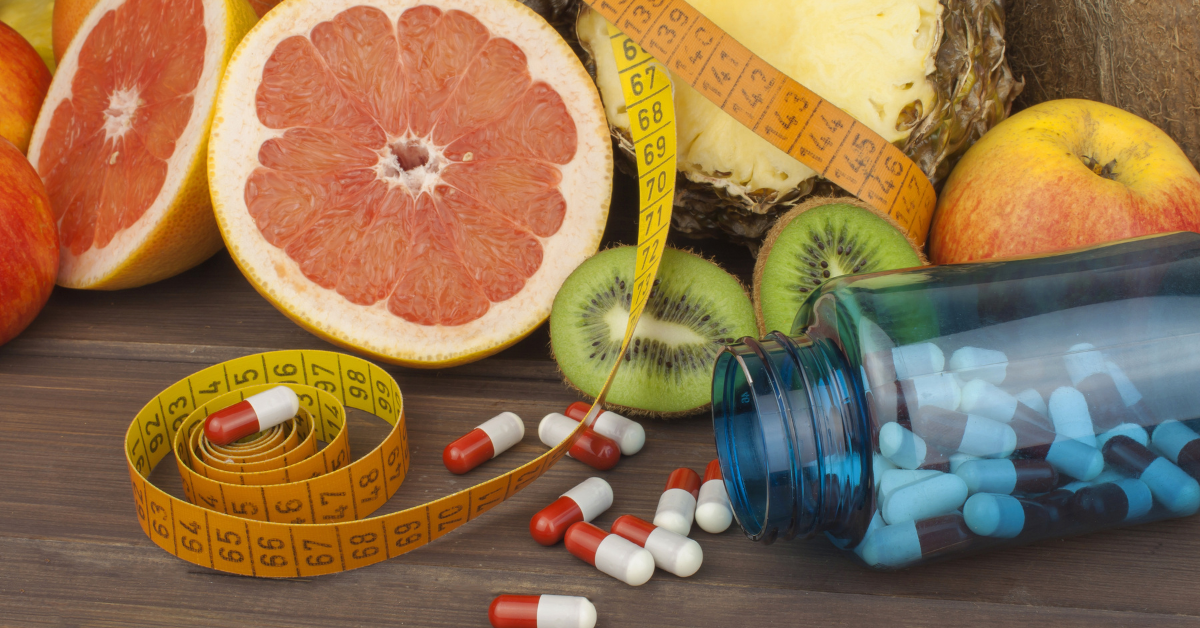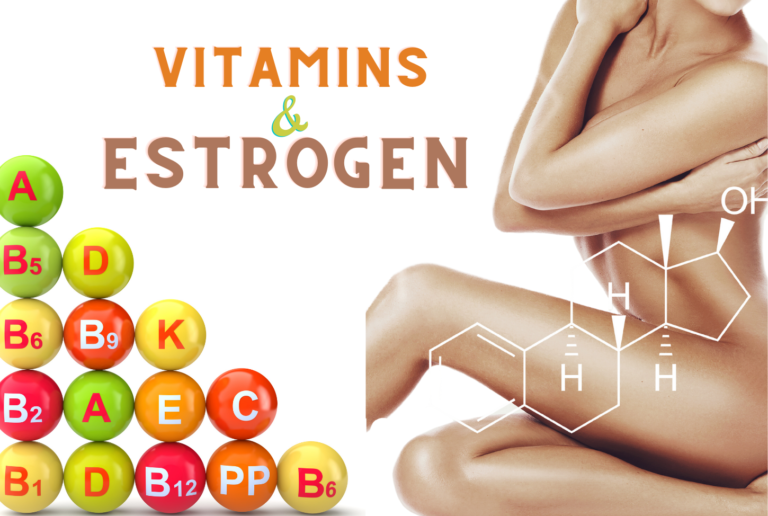19 Best Perimenopause Supplements for Symptoms Relief
Supplements play a crucial role in supporting your hormone levels during perimenopause. By nourishing your body with the right nutrients, you can help prolong your youthful vitality and minimize the disruptive physical symptoms that often accompany this phase. Let’s take a closer look at the top 19 best perimenopause supplements that can transform your experience:
Black Cohosh for Menopausal Symptoms
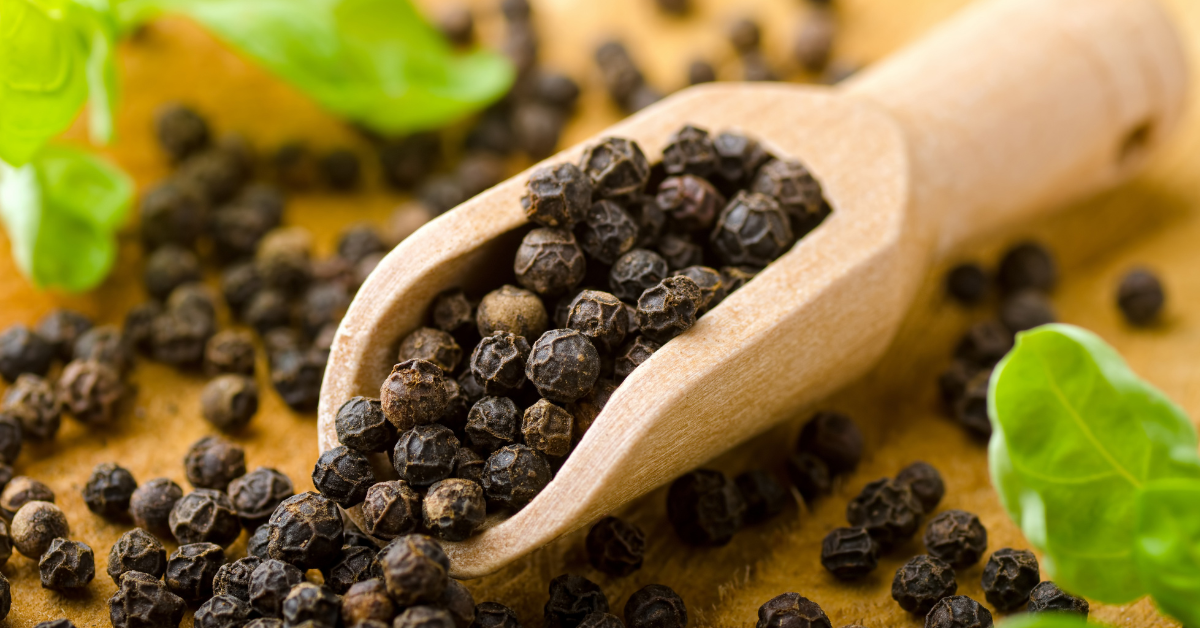
Black cohosh has long been used as a herbal remedy for menopausal symptoms. This powerful plant extract can help reduce hot flashes, night sweats, and mood swings. Including black cohosh in your supplement regimen can bring much-needed relief and restore your sense of hormone balance.
Red clover: Natural Hormone Replacement

Red Clover, a herb native to Europe and Asia, is a natural remedy showing promise for alleviating menopausal symptoms during perimenopause. Its richness in isoflavones, which possess estrogenic properties, makes it beneficial for those seeking alternatives to hormone replacement therapy.
By acting on estrogen receptors, red clover helps regulate hormonal imbalances, offering relief from hot flashes, night sweats, and mood swings. It may also support bone and joint health, important for those at risk of osteoporosis.
While more research is needed, red clover could be a viable herbal option for perimenopausal women seeking a natural approach. Consultation with a healthcare professional is recommended.
Ashwagandha for Stress Relief
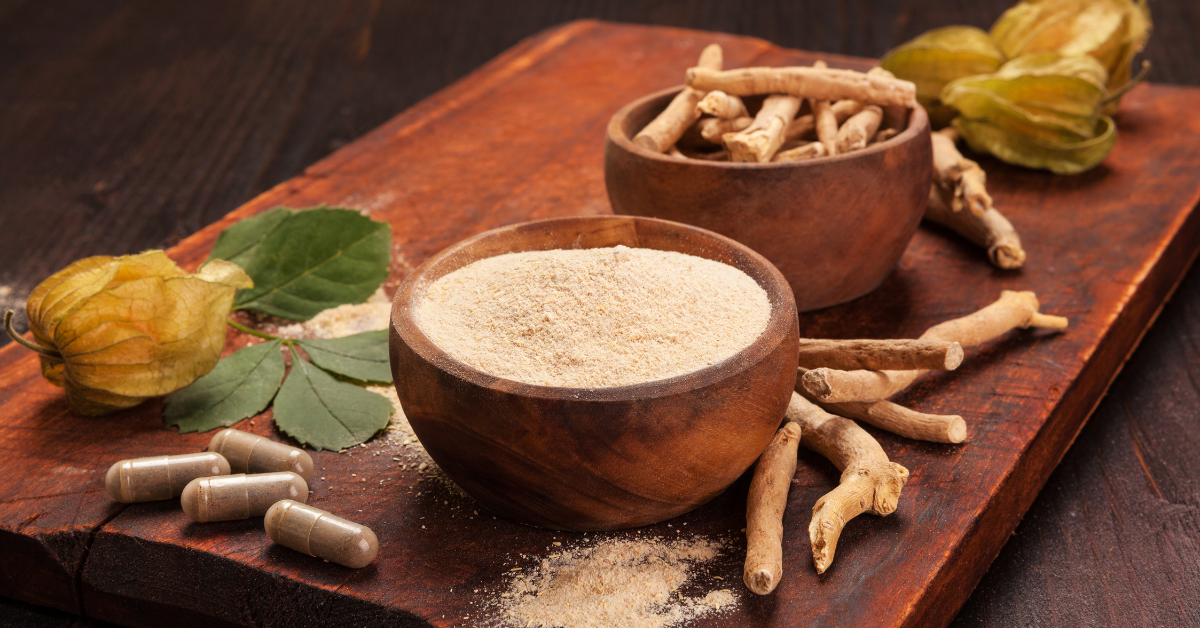
Ashwagandha, an adaptogenic herb, is gaining recognition for its stress-alleviating properties during perimenopause. With origins in India and North Africa, it has a long history of use in Ayurvedic medicine.
Ashwagandha’s adaptogenic nature helps balance cortisol levels, combating the impact of stress on physical and emotional well-being. Notably, it can effectively reduce anxiety, as seen in clinical studies on individuals with chronic stress or generalized anxiety disorder.
This herb shows promise as a natural option for managing anxiety during perimenopause. Additionally, Ashwagandha supports immune function, aiding overall health during hormonal fluctuations.
St. John’s Wort for Depression
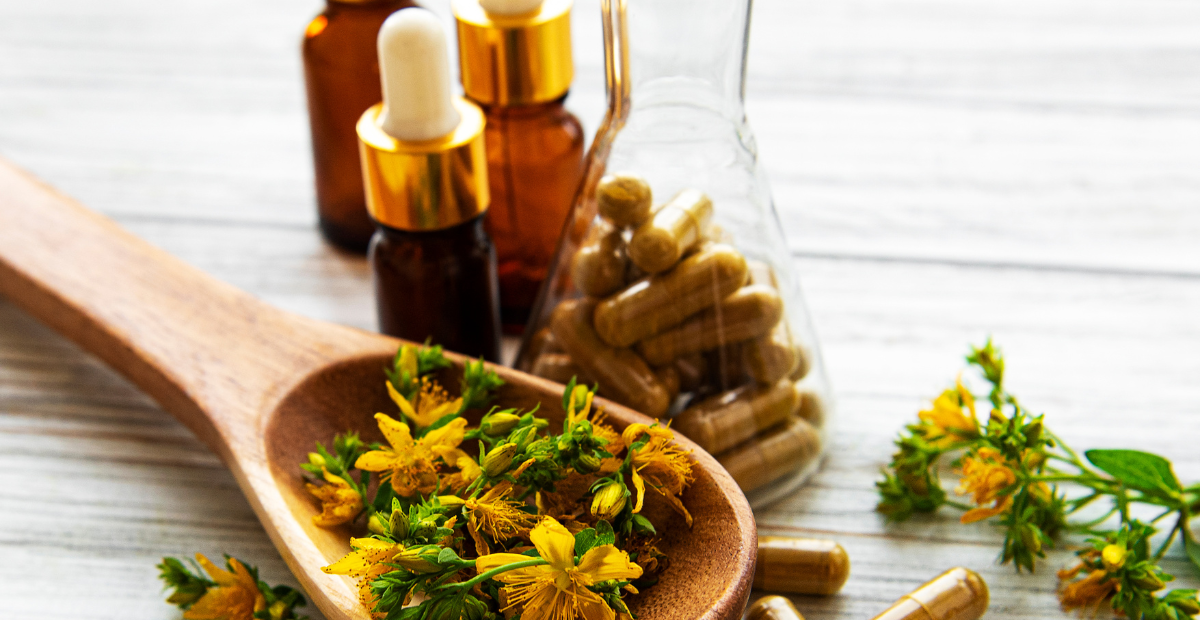
St. John’s Wort has gained recognition in recent years as an effective treatment option for its potential antidepressant properties, making it particularly relevant for women experiencing mood swings and depressive symptoms associated with perimenopause.
The appropriate St. John’s dosage varies depending on individual factors but generally ranges from 300 to 1200 mg per day of a standardized extract containing 0.3% hypericin – the active ingredient believed to have therapeutic effects.
However, understanding one’s unique needs and consulting with healthcare professionals remain crucial steps in determining whether this supplement will provide superior support throughout the perimenopausal phase.
Calcium for Supporting Strong and Healthy Bones

As estrogen levels decrease, the body’s ability to absorb calcium effectively is diminished, leading to bone loss and a higher risk of osteoporosis and fractures in later years. To combat these risks, incorporating calcium supplements into one’s daily routine becomes critical for maintaining overall bone strength and stability.
Osteoporosis prevention is particularly significant during perimenopause due to its potential long-term consequences on a woman’s quality of life.
Ensuring an adequate intake of calcium helps support bone remodeling processes that counteract the natural weakening of bones occurring at this time.
Some common food-based calcium sources include dairy products like milk and yogurt, leafy green vegetables such as kale and broccoli, and fortified foods including certain cereals and plant-based milk.
Supplementing with additional calcium can help bridge any gaps in dietary intake to ensure optimal Healthy bones throughout perimenopause and beyond.
Vitamin D for Calcium Absorption

Adequate vitamin D intake is vital for optimal bone health during perimenopause. It enhances calcium absorption by improving intestinal cell efficiency.
Vitamin D can be obtained through sun exposure, fortified foods, and supplementation. Sun exposure triggers vitamin D synthesis in the skin through UVB radiation. Fortified foods like milk and cereals offer additional sources.
Supplementation may be necessary for those with limited sun exposure or inadequate dietary intake. Consultation with healthcare professionals is important. Prioritizing vitamin D intake supports bone health and reduces the risk of osteoporosis in the long run.
Magnesium for Sleep and Muscle Health
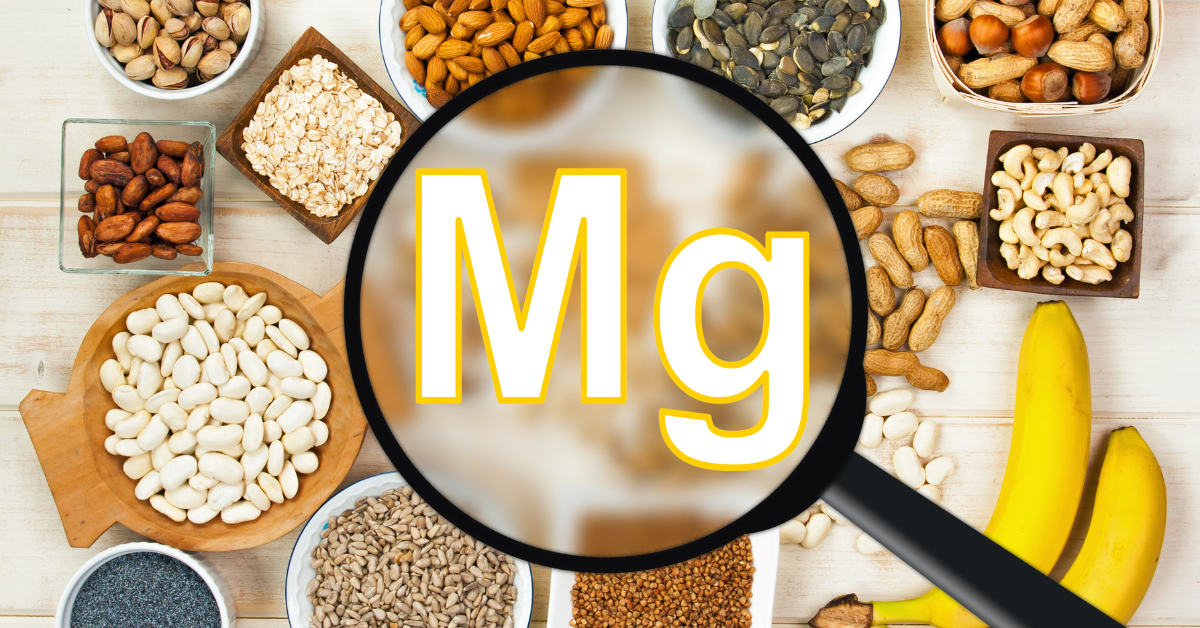
Magnesium is crucial for sleep quality and muscle health in perimenopausal women. Age-related decreases in magnesium levels can lead to sleep issues, like insomnia, muscle cramps, and fatigue.
Hormonal fluctuations during perimenopause can worsen these symptoms. Adequate magnesium intake is vital for overall well-being during this transitional phase. Dietary sources include dark leafy greens, whole grains, nuts, seeds, legumes, and fish.
However, some individuals may not obtain enough magnesium through their diet alone due to factors like soil depletion or poor dietary choices. In such cases or when specific health concerns arise, supplementation may be recommended to address magnesium deficiency-related symptoms during perimenopause, such as restless leg syndrome or worsening PMS symptoms.
Omega-3 Fatty Acids for Heart Health
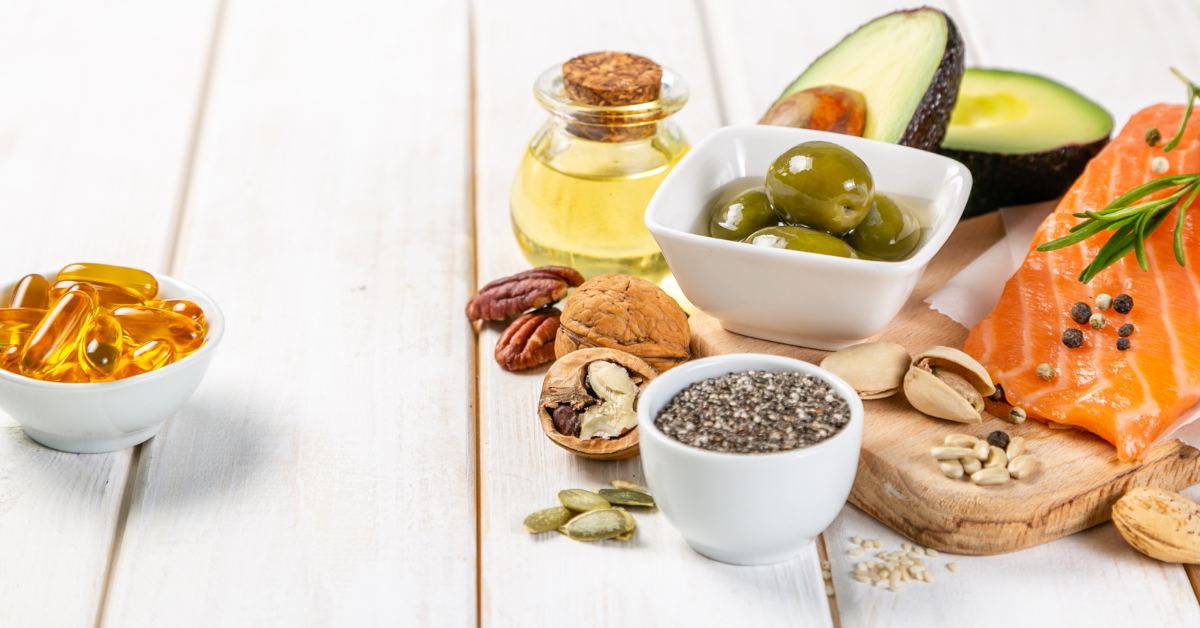
Omega-3 fatty acids are crucial for heart health during perimenopause. They reduce inflammation, lower triglyceride levels, and improve cardiovascular well-being.
Additionally, Omega-3s can enhance joint function and alleviate arthritis-related pain, facilitating physical activity. Oily fish, flaxseeds, and chia seeds are rich dietary sources of Omega-3s.
However, dietary restrictions or preferences may limit intake. In such cases, algae-based supplements or high-quality fish oil capsules can be viable alternatives to maintain optimal levels of these essential nutrients while accommodating individual dietary needs.
Probiotics for Digestive Health
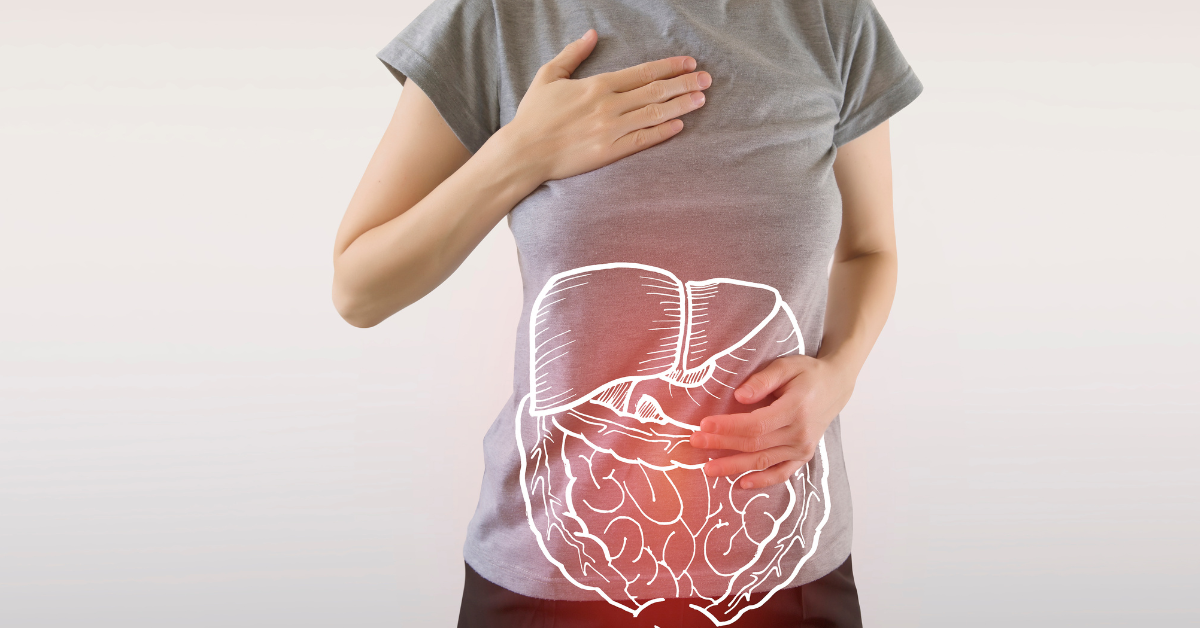
Incorporating probiotics into one’s daily regimen during perimenopause can significantly contribute to enhanced digestive health and overall well-being. These beneficial microorganisms help maintain the delicate balance of bacteria in the gut, which is crucial for optimal digestion and nutrient absorption.
Furthermore, recent research has unveiled a strong connection between gut health and brain function, highlighting the significance of maintaining a healthy gut-brain connection during this transitional phase in a woman’s life.
Additionally, incorporating probiotics offers an immune system boost as approximately 70% of the body’s immune cells reside within the gut lining. Therefore, fostering a healthy gut microbiome environment with ample beneficial bacteria ensures robust immune defenses during perimenopause.
B-Complex Vitamins for Energy
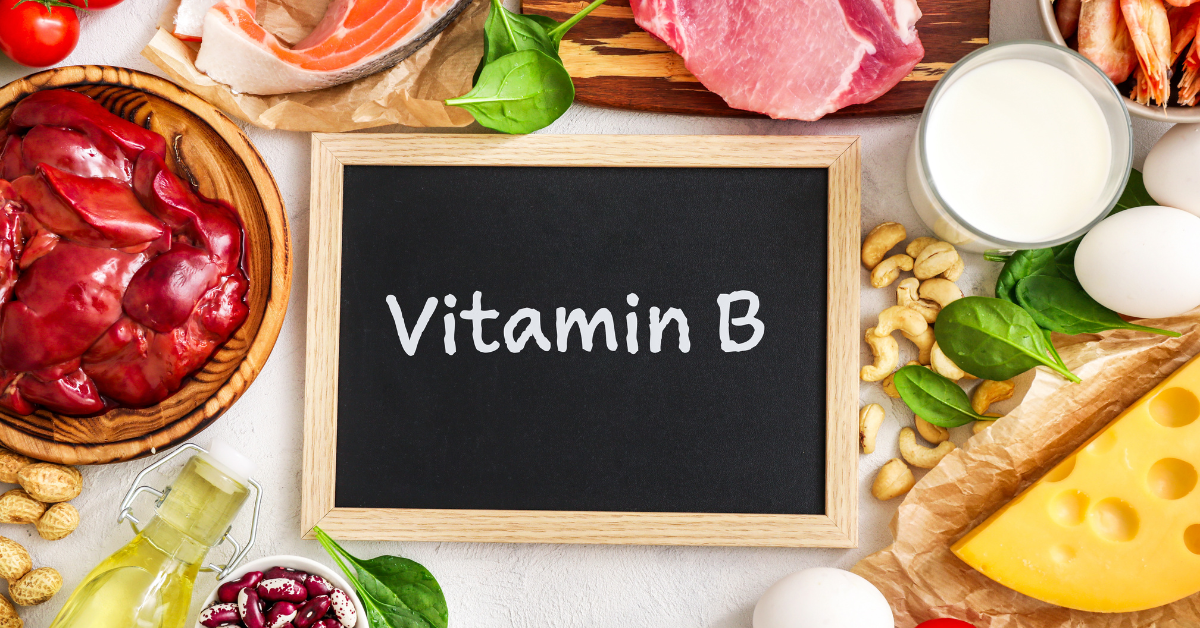
B-complex vitamins are vital for energy maintenance and fatigue reduction during perimenopause.
Thiamine, riboflavin, niacin, pantothenic acid, pyridoxine, biotin, folate, and cobalamin work together to support metabolism, brain function, hormonal balance, and red blood cell formation.
Niacinamide improves blood flow, reduces inflammation, and supports skin health. Riboflavin aids carbohydrate and protein metabolism, as well as glutathione synthesis for cellular protection.
Adequate intake of thiamine-rich foods like whole grains, legumes, nuts, and seeds is crucial. Incorporating B-complex vitamins into the diet or supplementation regimen can greatly enhance energy levels during perimenopause.
Ginkgo Biloba for Cognitive Function
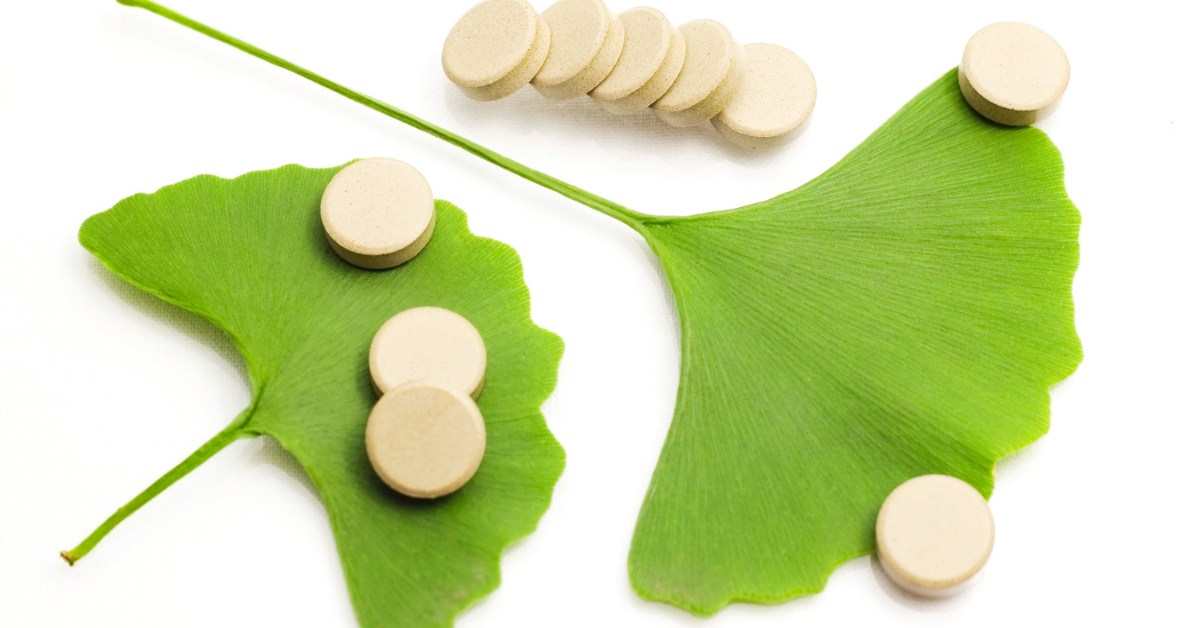
Cognitive changes and memory lapses are common in perimenopausal and menopausal women. Ginkgo biloba, a powerful herbal supplement, is known for its potential cognitive benefits for symptoms of menopause. It may enhance memory, focus, and overall mental clarity.
The extract derived from the leaves of the Ginkgo biloba tree contains potent antioxidants known as flavonoids and terpenoids that have been reported to protect neurons from oxidative stress and improve blood flow to the brain.
By adding ginkgo biloba to your daily regimen, you can support your brain health and combat the “brain fog” often experienced during this phase
Flaxseed for Hormonal Balance
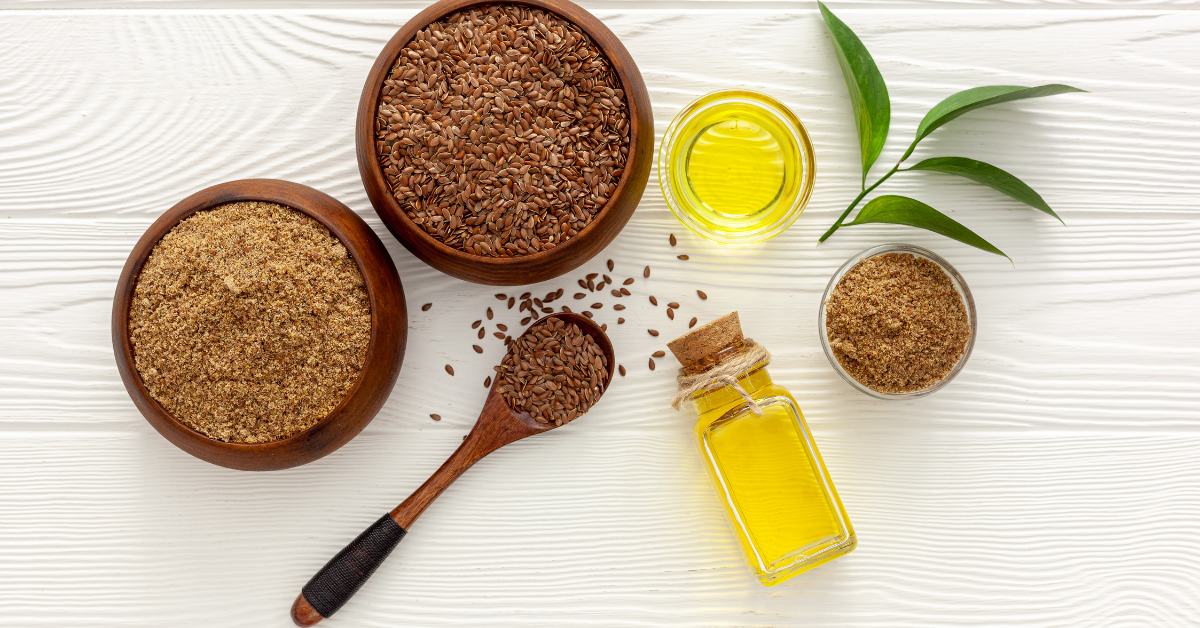
Flaxseeds are beneficial for hormonal balance during perimenopause due to their high lignan content.
Lignans bind to estrogen receptors, helping alleviate symptoms like hot flashes, night sweats, mood swings, and weight gain.
When incorporating flaxseeds for hormonal support, ground flaxseeds are preferable over flaxseed oil due to their higher lignan content.
While both forms offer health benefits, ground flaxseeds provide superior hormone-regulating properties.
Individuals seeking comprehensive support should prioritize incorporating ground flaxseeds into their meals or opt for high-lignan concentrated dietary supplements..
Coenzyme Q10 for Energy Production
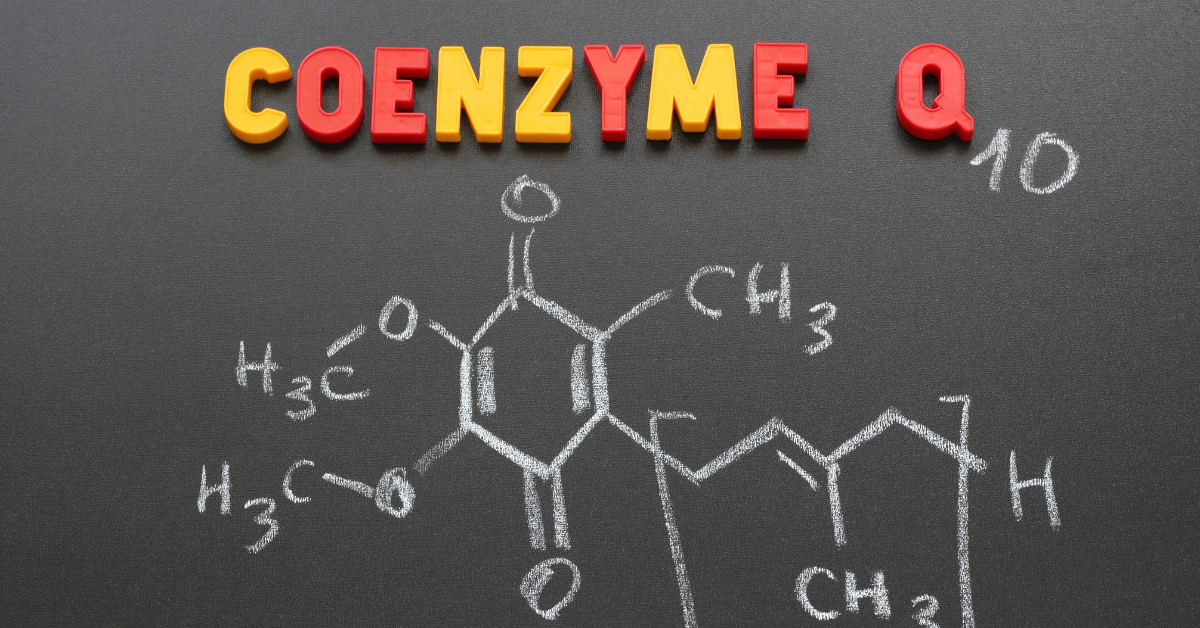
Coenzyme Q10 (CoQ10) is a vital nutrient for energy maintenance and overall health during perimenopause. It plays a crucial role in cellular energy production as part of the electron transport chain in mitochondria, producing ATP, the primary energy source.
Fatigue, caused by hormonal fluctuations and decreased mitochondrial function, can be addressed by supplementing with CoQ10. It enhances mitochondrial efficiency and offers antioxidant protection against oxidative stress.
CoQ10 is generally safe, but professional consultation is advised. Daily dosages typically range from 100 mg to 200 mg. Natural food sources include meat, fish, whole grains, legumes, nuts, and certain fruits and vegetables.
Evening Primrose Oil for PMS Symptoms
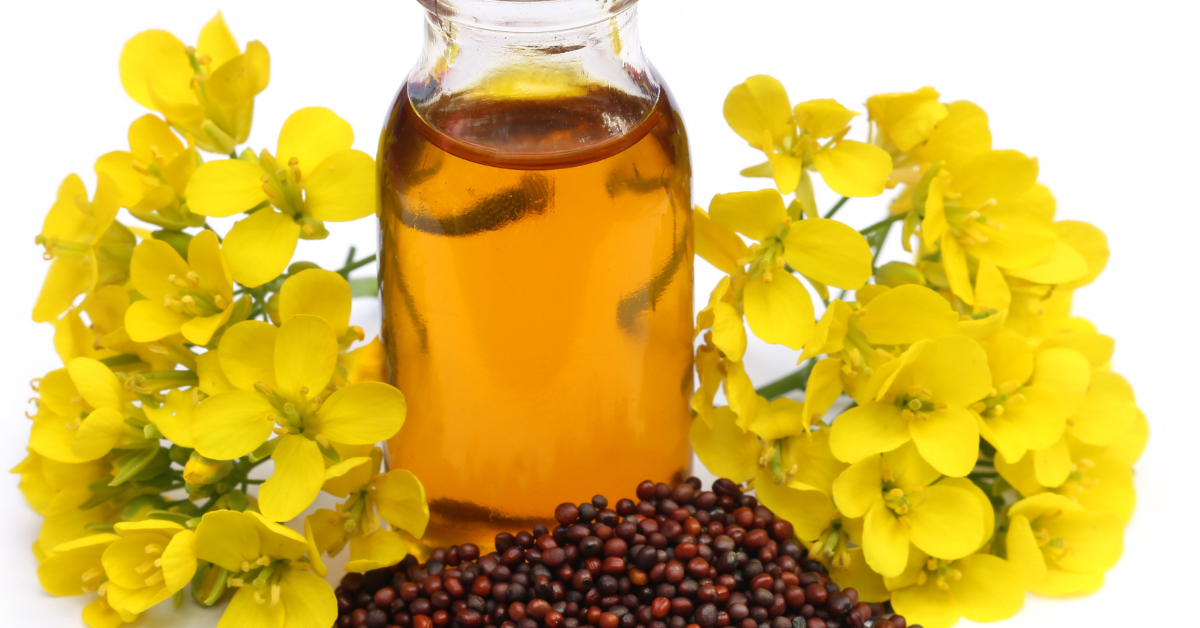
Evening primrose oil, derived from the seeds of the Oenothera biennis plant, is researched for its potential in alleviating PMS symptoms and providing relief during perimenopause.
Rich in gamma-linolenic acid (GLA), it helps reduce inflammation and balance hormone levels. This oil is commonly used in herbal PMS remedies and mood stabilizers.
Evening primrose oil converts GLA into anti-inflammatory prostaglandin E1 (PGE1), regulating hormonal imbalances.
Clinical studies show varied results, with some indicating significant improvements in symptoms like bloating, breast tenderness, mood swings, irritability, and depression.
However, research remains inconclusive. While some individuals rely on evening primrose oil for managing their perimenopause symptoms and discomforts, consultation with healthcare providers is crucial. Tailoring treatment plans based on personal needs is essential during this transitional phase.
Wild Yam Extract for Perimenopause and Menopause Symptoms Relief

Wild yam extract contains a natural plant compound called diosgenin, which closely resembles progesterone found in the body. By restoring progesterone levels, wild yam extract can help counterbalance estrogen dominance and alleviate associated Menopause symptoms like hot flashes and decreased libido. This extract may be particularly beneficial for addressing hair loss during the perimenopause and menopause stages.”
Selenium for Thyroid Health
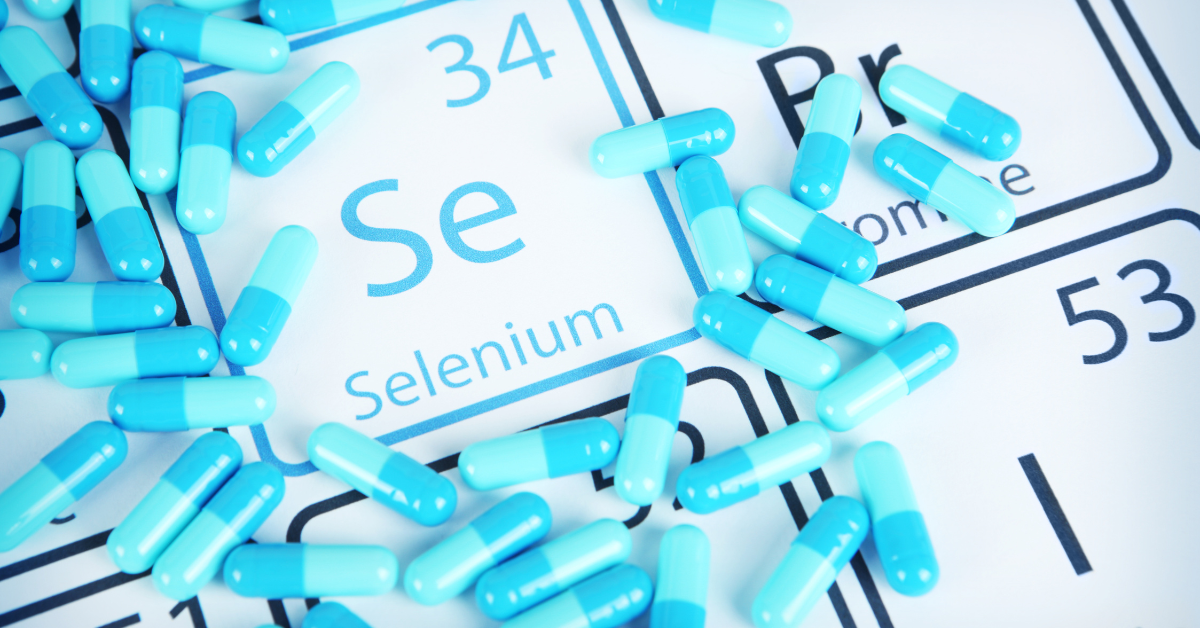
Selenium is a critical trace element for maintaining optimal thyroid function during perimenopause. It supports hormone production, metabolism, and body temperature regulation. Selenium’s antioxidant properties protect the thyroid from oxidative stress.
Including selenium-rich foods like Brazil nuts, fish, poultry, eggs, whole grains, sunflower seeds, and mushrooms in the diet ensures an adequate supply of this essential element.
Regular physical activity enhances blood circulation, facilitating the transportation of selenium to the thyroid. Incorporating selenium-rich foods and engaging in exercise improves hormonal balance during perimenopause.
Maintaining optimal selenium levels is vital for metabolic function and healthy aging. By prioritizing selenium through diet and physical activity, women can experience enhanced vitality and wellness during this significant life stage.
Turmeric for Inflammation Reduction
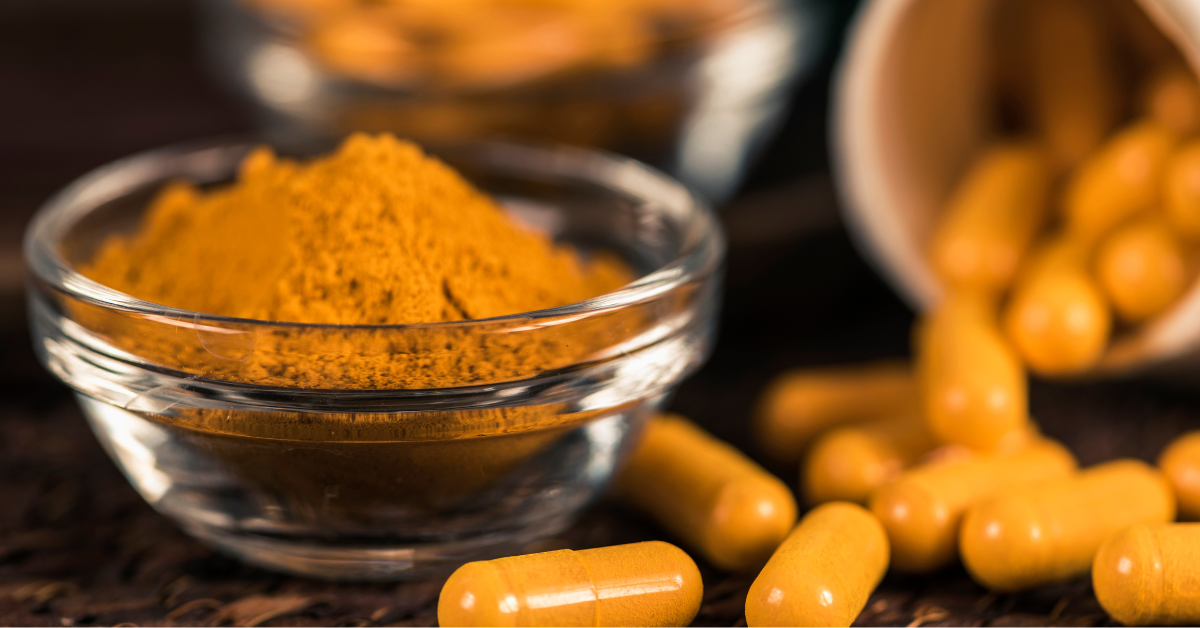
Turmeric, with its active compound curcumin, is a potent anti-inflammatory spice that effectively addresses inflammation during perimenopause. It helps alleviate many menopause symptoms, like emotional fluctuation, joint pain, and hot flashes.
Consuming turmeric as a warm beverage, such as turmeric tea, is beneficial. General dosage guidelines recommend 500 milligrams to 1 gram of curcumin extract per day for significant anti-inflammatory effects.
To enhance curcumin absorption, pairing it with black pepper or fat-soluble substances like coconut oil is advised. Including turmeric in anti-inflammatory recipes diversifies the diet and ensures consistent intake.
Turmeric offers a natural approach for managing inflammation during perimenopause, providing accessible relief through various consumption options.
Adhering to curcumin dosage and considering bioavailability factors supports its integration into wellness plans for perimenopausal symptom relief.
Iron for Anemia Prevention
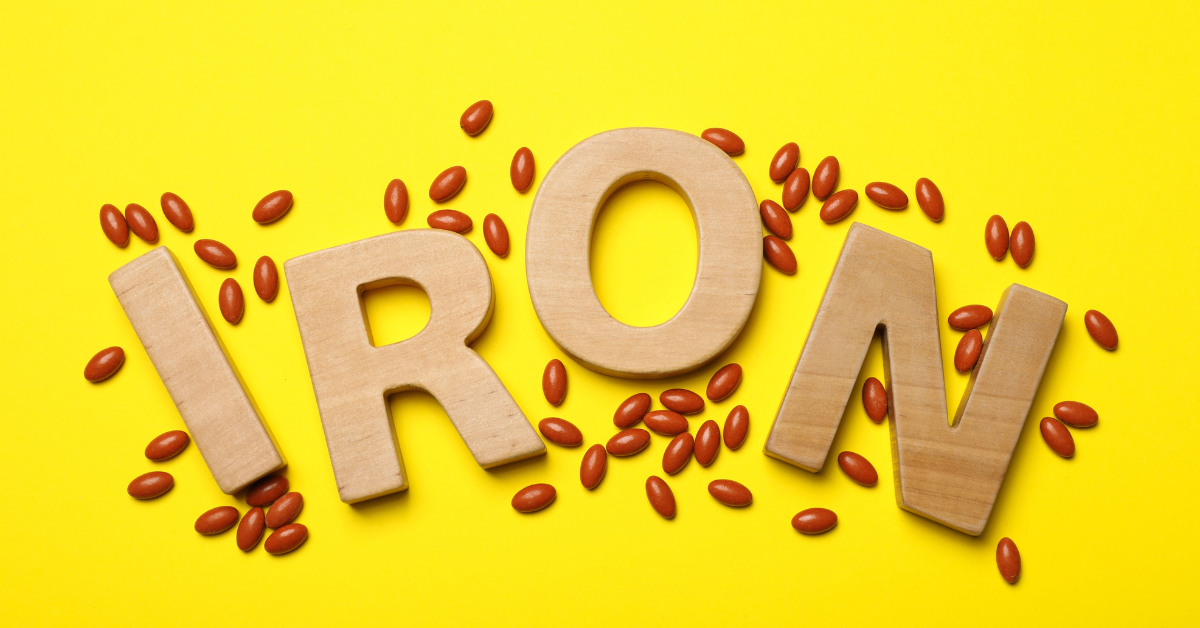
Iron is an essential nutrient to consider during perimenopause, as the risk of anemia increases with hormonal changes and menstrual blood loss. Adequate iron intake through diet or supplementation is crucial to prevent anemia and associated symptoms.
Iron-rich foods like red meat, poultry, fish, beans, and fortified cereals should be included in a balanced diet. However, some individuals may still experience anemia symptoms despite consuming these foods, such as fatigue, weakness, pale skin, shortness of breath, dizziness, or lightheadedness.
Consulting with a healthcare professional is important to assess iron levels and determine appropriate measures, including iron supplementation. Supplementing with iron replenishes stores, supports healthy red blood cell production, and alleviates symptoms, enhancing overall well-being during perimenopause.
Prioritizing adequate iron intake alongside other essential nutrients like selenium for thyroid health can transform the perimenopause journey into a more manageable and supported experience.
Melatonin for Sleep Regulation
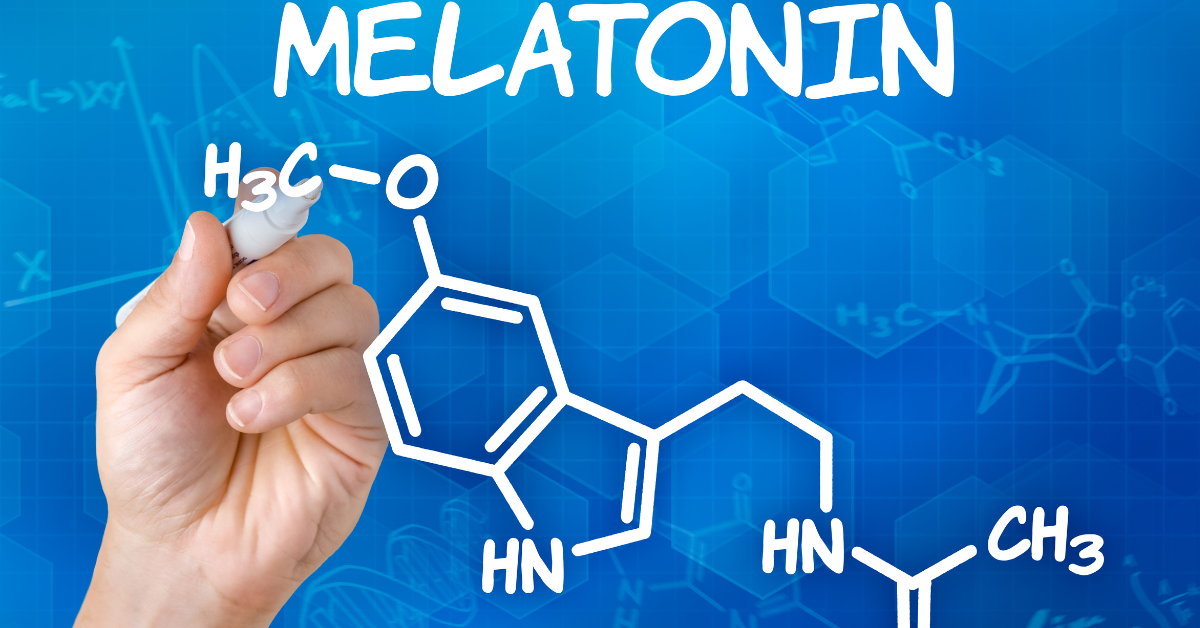
Melatonin supplementation can be crucial for regulating sleep patterns and addressing insomnia during the perimenopausal phase.
Hormonal fluctuations disrupt the body’s natural circadian rhythm, affecting sleep quality. Melatonin, produced by the pineal gland, promotes restful sleep and helps alleviate sleep disturbances associated with perimenopause.
It is a safe and non-habit-forming supplement for short-term use, aiding in falling asleep and regulating disrupted sleeping patterns. Melatonin also possesses antioxidative properties that contribute to overall health improvement.
Alongside supplementation, lifestyle modifications such as exercise, stress management, tryptophan-rich foods, and consistent sleep schedules can improve sleep quality.
By implementing these strategies and consulting healthcare professionals, individuals can enhance their well-being and ensure proper rest during perimenopause.
Click Here to check-out How Vitamin A helps Support Menopause
Healthy Foods Simplified in a table
Here’s a list of Healthy foods that are good sources of various supplements:
| Supplement | Healthy Foods |
|---|---|
| Calcium | Dairy products (milk, cheese, yogurt), leafy greens (spinach, kale, collard greens), broccoli, almonds, sesame seeds, fortified plant-based milk |
| Vitamin D | Fatty fish (salmon, mackerel, trout), fortified dairy products (milk, yogurt), egg yolks, mushrooms exposed to sunlight, fortified cereals |
| Magnesium | Dark chocolate, nuts (almonds, cashews, peanuts), seeds (pumpkin, flax, chia), legumes (black beans, chickpeas), whole grains (brown rice, quinoa) |
| Omega 3 | Fatty fish (salmon, sardines, trout, mackerel), flaxseeds, chia seeds, walnuts, hemp seeds |
| Probiotics | Yogurt, kefir, sauerkraut, kimchi, kombucha, pickles, miso, tempeh |
| Vitamin B complex | Whole grains (brown rice, oats, whole wheat), legumes (lentils, beans), leafy greens (spinach, kale), eggs, dairy products (milk, cheese), fortified cereals |
| CoQ10 | Organ meats (liver, heart), fish (sardines, mackerel, salmon), whole grains (oats, brown rice), nuts (almonds, peanuts), spinach, broccoli |
| Selenium | Brazil nuts, fish (tuna, salmon), poultry (chicken, turkey), eggs, whole grains (brown rice, quinoa), sunflower seeds, mushrooms |
| Iron | Red meat (beef, lamb), poultry (chicken, turkey), fish (tuna, salmon), beans (kidney beans, black beans), lentils, spinach, fortified cereals, tofu |
Please note that this is not an exhaustive list and there are other food sources available for these supplements. It’s always advisable to consult with a healthcare professional or registered dietitian for personalized dietary recommendations based on individual needs and health conditions
SUMMARY

It is evident that various natural supplements can provide significant support during perimenopause. These natural remedies have been shown to alleviate common symptoms associated with this transitional phase in a woman’s life.
Further research and consultation with healthcare professionals are recommended to determine the most effective combination of these supplements for each individual. Incorporating these supplements into one’s daily routine may lead to improved overall well-being and a smoother transition through perimenopause.
Frequently Asked Questions
Q: How long does it typically take to see the benefits of these supplements in easing perimenopause symptoms?
A: The perimenopause timeline varies for each individual, and the duration of experiencing benefits from supplements in easing perimenopause symptoms is contingent upon several factors. The efficacy of hormone balancing supplements depends on the specific supplement used, the dosage, and the unique hormonal profile of each person. It is essential to prioritize supplement safety by consulting a healthcare professional before beginning any supplementation regimen.
In general, it may take anywhere from a few weeks to several months for noticeable improvements in perimenopausal symptoms to manifest. However, consistent adherence to a well-researched and personalized supplementation plan holds potential for providing superior support during this transitional period.
Q: Are there any potential side effects or interactions with medications when taking these supplements for perimenopause support?
A: Although many supplements are generally deemed safe for consumption, it is essential to consult with a healthcare professional before incorporating them into one’s routine, particularly if an individual is already taking medications or has pre-existing medical conditions.
Q: Can these supplements be taken together, or should they be taken separately at different times of the day for optimal results?Q:
A: It is imperative to consider that each person’s unique physiological needs and responses to specific supplement combinations may vary, necessitating an individualized approach towards supplementation.
To ensure maximum efficacy and minimize potential interactions, it is advisable to consult with a healthcare professional for personalized guidance on dosage, scheduling, and possible contraindications.
Q: Are there any specific dietary or lifestyle changes that can enhance the effectiveness of these supplements in managing perimenopause symptoms?
A: A balanced diet rich in whole foods, including fruits, vegetables, lean proteins, healthy fats, and whole grains can provide essential nutrients that work synergistically with supplements to alleviate discomfort during this transitional period.
Engaging in regular physical activity offers numerous advantages such as improved mood regulation, weight management, and increased bone density – all of which are particularly important during perimenopause.
Furthermore, incorporating stress reduction techniques like mindfulness meditation or yoga into one’s daily routine contributes to hormonal balance and optimal mental well-being.
Q: How can one determine the appropriate dosage for each supplement, and should the dosage be adjusted as symptoms change?
A: Determining the appropriate dosage for each supplement during perimenopause requires a multifaceted approach, encompassing dosage consultation with a healthcare professional, diligent symptom tracking, and personalized supplementation.

